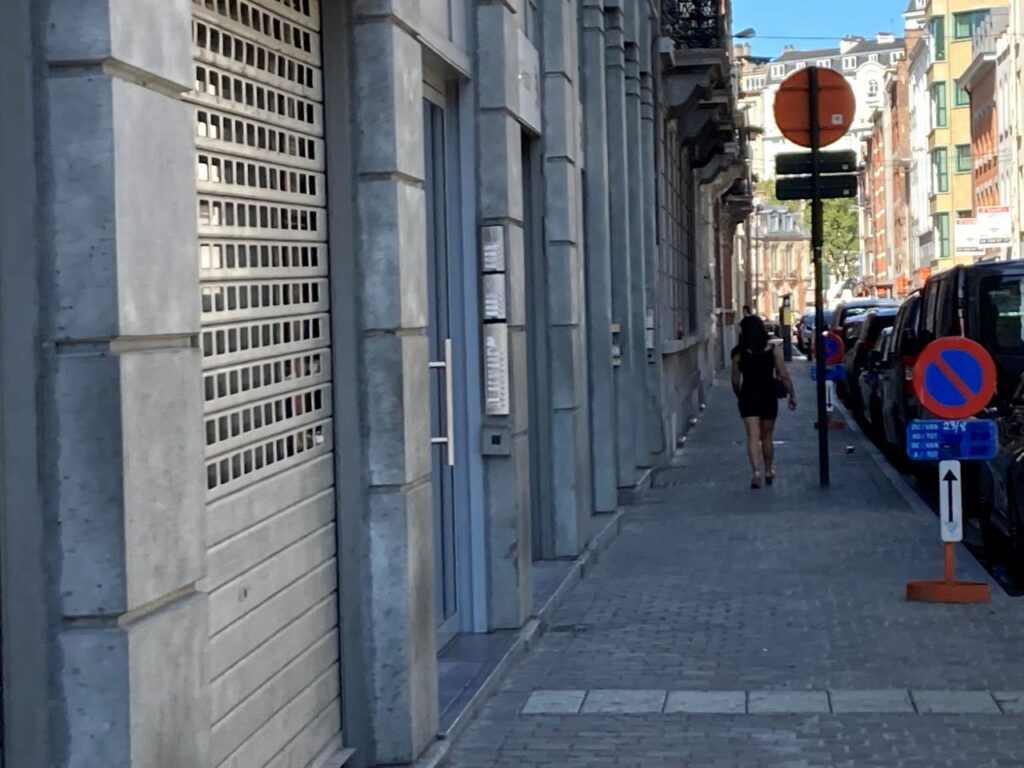As part of "one of the largest anti-human trafficking operations in years" within the Chinese prostitution environment, 27 people were arrested and 20 victims were found during raids in several cities across Belgium on Tuesday.
Some 300 police officers of the Federal Judicial Police (FGP) raided 26 addresses across the country and arrested 27 suspects for questioning. Nine of them were brought before the investigating judge and deprived of their freedom on charges of human trafficking and money laundering.
"For several years now, the presence of Chinese sex workers has been increasing in Belgium, with a centre of gravity in Brussels," a press release by the Federal Public Prosecutor's Office reads. In the Brussels-Capital Region, searches were conducted in the City of Brussels, Molenbeek-Saint-Jean, Koekelberg, Jette, Evere and Woluwe-Saint-Lambert.
Police seized €1.5 million in banknotes as well as four tonnes of coins. The operation was carried out after two years of investigations by the Federal Judicial Police. The cooperation of Eurojust and Europol allowed simultaneous operations in Spain (five searches) and Switzerland (two arrests). A request was made to hand them over to Belgium.
Mapping out the organisation
The FGP East Flanders – commissioned by the Federal Public Prosecutor's Office and led by an investigating judge in Ghent – started looking into a criminal organisation that transfers Chinese women to Europe and forces them into prostitution. After intensive investigation, the organisation could be mapped out.
"The criminal organisation recruits women in China and transfers them to Europe, where they are forced into sexual exploitation – often for private prostitution. The organisation uses online rental platforms, hotels, or holiday homes where appointments can be made via specialised websites for sex advertisements."
The victims are frequently moved between locations in Europe and a large part of their earnings is taken. Many of the victims no longer have legal residence status, which further increases their dependence on the criminal organisation.
The organisers take advantage of their precarious situation to exploit them, acquiring large sums of money that are transferred abroad through both legal and illegal channels. "During the Covid-19 period, activities also moved to street prostitution, especially visible in the Brussels Alhambra district," the Public Prosecutor's Office said.
Related News
- Brussels gang forcing underage girls into prostitution shut down
- Brussels plan to combat violence against women lacks 'integrated political vision'
- Exploitation of Chinese people in Belgium 'clearly on the rise'
In addition to Brussels, searches were also carried out in the cities of Antwerp, Charleroi, Leuven and Neufchâteau (in the Luxembourg province), as well as in the municipalities of Meise, Beerse and Kasterlee. In the Brussels' Alhambra district, which was plagued by nuisance, various properties were checked and seized.
Now, the victims – all of them of Chinese origin – are in the care of a specialised reception centre. Of the suspects, 22 are of Chinese origin; three have Belgian nationality.
Simultaneously with the Belgian intervention, house searches and arrests were made in the Spanish cities of Alicante and Barcelona, at the request of the Belgian investigators. Both the EU Agency for Criminal Justice Cooperation Eurojust and the EU police force Europol made important contributions to the investigation.
Update: This article was updated to include more information released by the Public Prosecutor's Office on 8 February.

